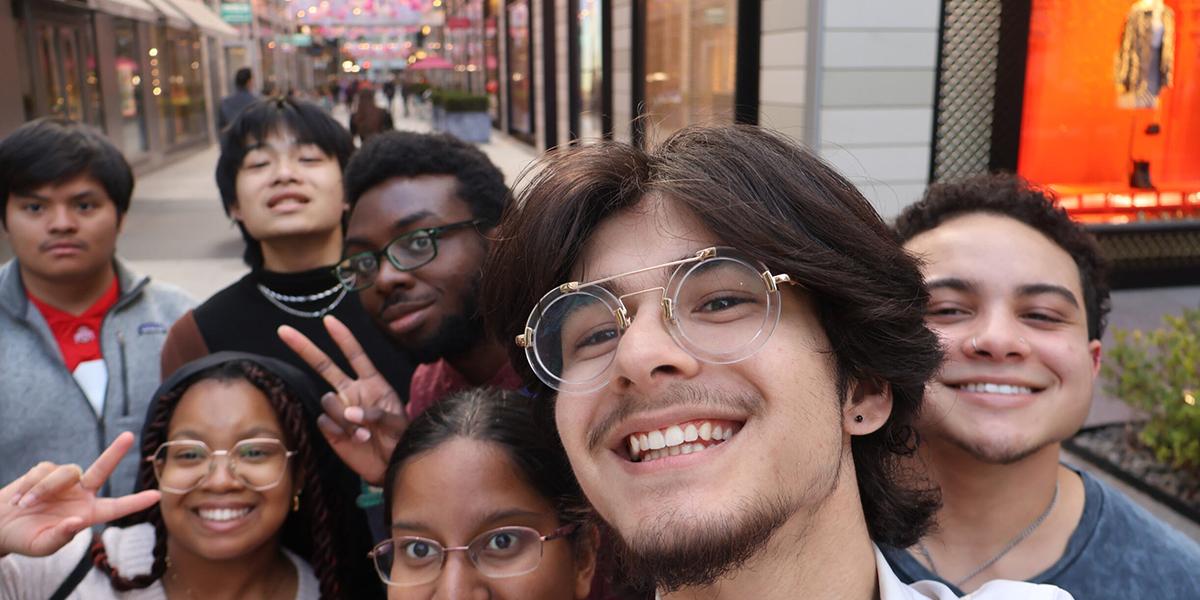For many Ohio State students, Spring Break is a time for kicking back, but over two dozen Morrill Scholars chose to spend their Spring Break by giving back. The students traveled to Washington DC through MSP’s Alternative Spring Break Program, where they volunteered with local organizations increasing food access in areas around the capital.
The three-day trip focused on DC neighborhoods populated largely by low-income communities of color. The wards are home to 75% of the district’s food deserts—areas defined as anywhere the closest grocery store is more than half a mile away—and contain just four full-service grocery stores.
“We don’t really talk about how important it is for families to be able to go a short distance to the grocery store and get the necessities they need,” commented Zoe Haithcock, a third-year accounting major. “There’s always a lot of fast food around, but when you want fresh produce and food that you can cook at home, you have to travel for hours just to get to the couple stores that have what you need.”
While food access was a brand-new topic for some scholars, it hit close to home for others like Jared Alonzo, a first-year Morrill Scholar double majoring in computer science and mathematics. “I come from a low-income background in Cincinnati, and I often went to food pantries and food drives as a kid,” Alonzo said. “I felt like it would be quite an experience to see the other side of that, the people who work behind the scenes—but it wasn’t until I got there that I realized the magnitude of the issue.”
Students surveyed families at So What Else, a food bank that supplies fresh produce at mobile distribution sites throughout the city; learned about DC’s food access challenges at Martha’s Table, a charity that provides food and nutrition education; and planted produce at Thurgood Marshall Academy, a high school that grows fresh food through its own community garden.
For many, interacting with the families who benefit from such programs was especially meaningful. “It was impactful to hear their stories,” said Prince Okyere-Ababio, a first-year student studying computer science and engineering. “Some of the people said the service provided is one of the best things that has happened to them because they don’t have to take a bunch of buses or strain their bodies to go across the city to get groceries.”
While much of the trip focused on service, students also explored the capital, visiting popular tourist sites like the National Museum of African American History and Culture, National Air and Space Museum, Library of Congress, and Bethesda Row. They also rubbed shoulders with MSP alumni one evening for a networking dinner.
Ultimately, students emerged from the trip with a deeper understanding of food accessibility—and a stronger desire to find solutions in the future. “After this experience, I’ve been thinking, ‘Maybe I should go into something dealing with food or sustainability as a focus,’” Haithcock said. “This is an issue that I want to work towards helping and improving in any small way I can, and this trip definitely helped me see that.”
